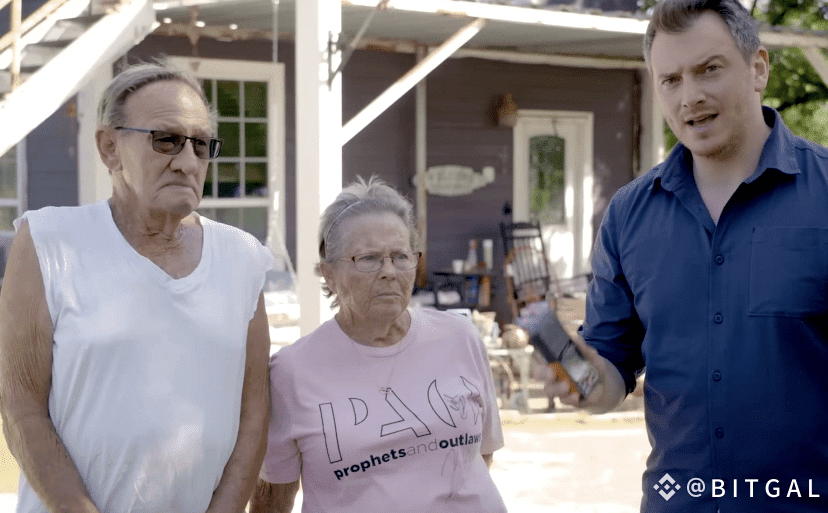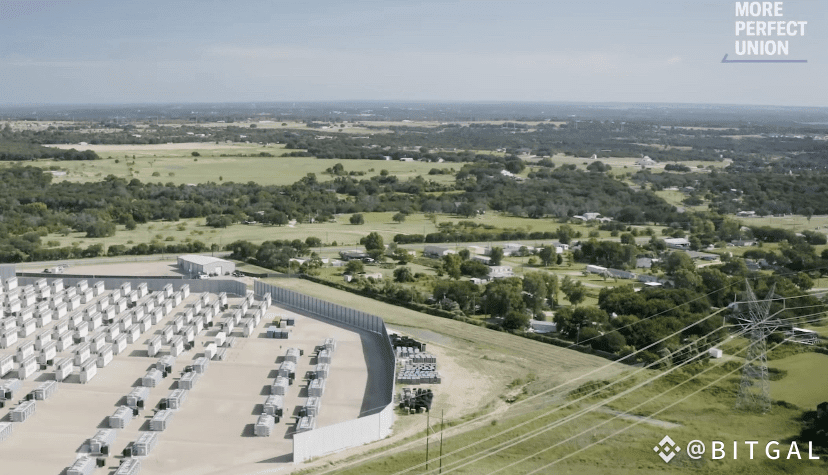Granbury, Texas — once a sleepy countryside escape just 70 miles from Dallas — now hums like a giant mosquito that never rests. The sound? Not from traffic. Not from nightlife. From Bitcoin.

The culprit, locals say, is a massive mining facility run by Marathon Digital Holdings, one of America’s biggest crypto mining companies — valued at over $6 billion. Thousands of high-speed machines churn 24/7, solving complex equations and burning through 300 megawatts of power — enough to light up half a million homes. But for the residents? It’s lighting up headaches instead.
💢 “It’s Like Living Next to a Jet Engine”
Nick and Virginia Browning, both in their eighties, have lived here for 35 years. They came for peace, not pressure. But now, their nights echo with a deep, low-frequency hum that drills into the skull.
“It’s not normal noise,” Nick says. “It’s like a vibration you can feel in your bones.”
Virginia adds, “We can’t sleep. We can’t rest. It’s like our home is alive with this awful sound.”
Neighbors report migraines, sleepless nights, and stress-induced health issues. Local tests even recorded noise levels above legal limits, at times crossing hundreds of decibels inside homes. Some have started wearing hearing protection indoors.
One resident joked bitterly, “Maybe someone has to die before they take us seriously.”
⚙️ When Crypto Meets Chaos

The facility runs day and night — rows of high-speed ASIC miners stacked inside industrial containers, guzzling electricity and spewing constant sound waves. What used to be farmland now glows with floodlights and hums like a swarm of metal bees.
This operation is part of Texas’s booming crypto gold rush. With cheap energy, wide open land, and minimal regulation, the state has become the new capital of Bitcoin mining in the U.S. The mining industry here is expected to hit $2.25 billion, with dozens of industrial-scale sites popping up.
Governor Greg Abbott proudly calls Texas “the crypto capital of the world.” He’s backed bills that even allow public funds to be stored in Bitcoin reserves. Politicians like Ted Cruz have taken big donations from crypto-linked PACs, and many claim to be “mining” themselves.
But on the ground, locals say they’re paying the price — not in Bitcoin, but in broken sleep and fractured peace.
🏛️ Politics, Power, and Pressure
This isn’t just a Texas story — it’s a reflection of America’s shifting power grid and political alliances. The same crypto industry once dismissed by Donald Trump is now finding favor with him.
During his 2024 campaign, Trump flipped his stance — from calling Bitcoin a scam to calling it a symbol of American innovation. “If crypto defines the future,” he said, “then it should be mined, minted, and made in the U.S.”
That support brought miners billions in political backing — and critics say it also silenced environmental oversight.
The result? Small towns like Granbury, where the buzz of machines drowns out the voices of its residents.
💀 The Hidden Cost of Digital Gold
Bitcoin mining has long faced backlash for its energy use — but now, it’s noise pollution that’s catching headlines. The hum of thousands of cooling fans and processors creates a constant soundwave that experts compare to living near a factory turbine.
Texas law caps industrial noise at 85 decibels, but recordings near the Browning home showed spikes well above that. “It’s not just sound,” one environmental researcher noted. “It’s vibration — and vibration travels through walls, through skin, through nerves.”
Granbury’s struggle is a warning — that the digital gold rush has a human cost.
🔊 The Bigger Picture
Bitcoin mining once symbolized freedom from the traditional system. But for residents like the Brownings, it’s now the sound of captivity — trapped between progress and peace.
As crypto companies expand deeper into rural America, regulators will have to answer a hard question:
Can innovation and humanity coexist — or will one have to go silent?
For now, in Granbury, the machines keep humming. And the town that once dreamed quietly now dreams of quiet again.
